Marketers hear about the importance of content to search engine optimization (SEO) about every day, but just how important is it? We have a clear answer for you: it's the single most important aspect of SEO. We at fjorge were shown its importance first-hand when we saw our Website Maintenance Plan page go from ranking #10 to #1 to #8 for the keyword "website maintenance plan", all in the span of nine months.
The fjorge website maintenance plan became a major focus for us near the end of 2015. At this point, we were writing occasional blog posts about website maintenance, but were not following a strict content strategy tied to a measurable goal. After some competitive research, we determined that we could see great success in ranking highly for "website maintenance plan" if we developed, and stuck to, an aggressive content strategy.
The Rise
What we did
Our quest to rank #1 for "website maintenance plan" started with a competitive audit centered on figuring out how we were currently performing, competitors that were in our way, and developing a plan and timeline for accomplishing our goal. Starting with a ranking of #10, we predicted that we would rank #1 for "website maintenance plan" in five months if we followed a strict content plan. This content plan involved the publishing of five keyword-targeted blog posts and four keyword targeted landing pages over a six month period.
Results
Months 1-2:
- We published two blog posts: 7 Ways to Make Website Maintenance Easy & To-Do's For Your Digital Due Date: 9 Tips For A New Website Launch
- We published four landing pages: Website Downtime Cost Calculator, Website Maintenance Checklist, Website Maintenance Plan, & Website Maintenance Plan Comparison
- This aggressive content strategy over a short period of time caused our ranking to increase to #5.
Months 3-4:
- We published two blog posts: How do Website Maintenance Plans Help You? & Why Website Maintenance is a key component of your Digital Strategy
- Maintaining our momentum during this period through blogging caused our ranking to reach as high as #3.
Month 5:
- We published one blog post: The Ultimate Guide to Maintaining Your Website
- In the week after publishing this blog post, we secured the #1 ranking for "website maintenance plan". Publishing this lengthy and in-depth blog post during the final month of our goal timeline was an integral part of our strategy and plan, and it ended up being what pushed us "over the top" to achieve our goal.
The Fall
What we did
Simply put, we stopped creating content about website maintenance plans. In the four months since achieving the #1 ranking for "website maintenance plan", we published only one blog post targeting the keyword as our marketing and digital strategy focuses shifted.
Results
Months 6-7:
- Our ranking hovered around #3-4 during the two months after achieving the #1 ranking
Months 8-9:
- We published one blog post: Why Website Maintenance is Critical to SEO
- This blog post was published as a response to our drop in search rankings, and it gave us a short boost (for a week or two). By the end of month nine, however, we had dropped to #8 in the search rankings.

Conclusion
Ranking highly for targeted keywords is not an overly difficult thing that only technology and web experts are capable of. Depending on opportunity and competition, SEO almost always comes down to developing a strict content plan and sticking to it. This is what we did for "website maintenance plan" and we ended up on top of search rankings for the keyword (but not for long). After shifting focuses to ranking highly for other keywords, our rankings decreased. We saw first-hand how important ongoing, keyword-targeted content creation is to SEO. If you publish ongoing, keyword-targeted content, you'll rise in the rankings for the search queries you're going after. If you don't, you'll fall, and it could happen fast.








